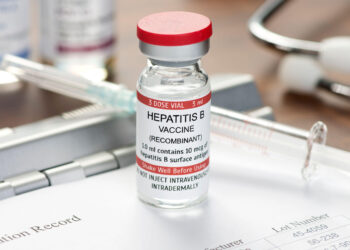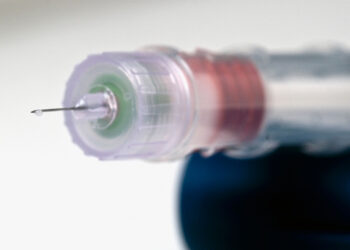TOPLINE:
Psychological therapy was associated with significantly reduced symptoms of depression and anxiety among patients with a history of stroke, with greater benefits in those who initiated talk therapy within 6 months of the stroke compared to those who began treatment later, new research showed.
METHODOLOGY:
- Researchers analyzed data from more than 7000 adults with a hospital diagnosis of stroke. All had undergone at least two sessions of poststroke psychological treatment through the National Health Service Talking Therapies program for anxiety and depression in England between 2012 and 2019.
- Primary outcomes included “reliable improvement,” defined as a 6-point or greater reduction on the 9-item Patient Health Questionnaire (PHQ-9) or a 4-point or greater reduction on the 7-item Generalized Anxiety Disorder scale (GAD-7); “reliable recovery,” which included improvement along with scores below 10 on the PHQ-9 and scores below 8 on the GAD-7; and “reliable deterioration,” defined as at least a 6-point increase on PHQ-9 or at least a 4-point increase on GAD-7.
- Secondary outcomes included pre- to posttreatment score changes on the PHQ-9 and GAD-7.
TAKEAWAY:
- After undergoing talk therapy, 71% of patients with a history of stroke and baseline depression or anxiety symptoms had reliable improvement in psychiatric symptoms, and 49% had reliable recovery, while only 7% had reliable deterioration.
- After treatment, mean PHQ-9 and GAD-7 scores decreased by 6.5 and 5.5 points, respectively, indicating moderate reductions in depression symptoms and large reductions in anxiety symptoms.
- Analysis adjusted for demographics and other covariates showed that patients who initiated psychological services 12 months or more after stroke had 20% lower odds of reliable recovery compared to those who initiated treatment within 6 months of stroke.
- Compared with a matched sample of individuals who never had a stroke, those with a history of stroke were less likely to reliably recover (odds ratio [OR], 0.9; P < .001) and more likely to reliably deteriorate (OR, 1.2; P = .04), but these differences disappeared after adjusting for physical comorbidities.
IN PRACTICE:
The study “strongly supports the effectiveness of primary care psychological therapy as a first-line treatment for common mental health disorders after a stroke,” the researchers wrote.
“It is essential for general practitioners and other clinicians working with stroke survivors to screen for depression and anxiety symptoms and refer patients for psychological therapy as early as possible,” the lead investigator said in a press release.
SOURCE:
The study, led by Jae Won Suh, University College London, London, England, was published online on June 5 in Nature Mental Health.
LIMITATIONS:
The sample may not have represented all survivors of stroke, especially those with severe impairments or those from underrepresented ethnic backgrounds. The study also lacked detailed data on stroke severity, cognitive or sensory deficits, and prestroke mental health status, as well as information on whether depression or anxiety began before or after the stroke. Information on lifestyle factors and the burden of comorbidities was also limited.
DISCLOSURES:
This study was funded by the Alzheimer’s Society. Some investigators reported having unrelated consulting roles and funding from various organizations. Full details are provided in the original article.
This article was created using several editorial tools, including AI, as part of the process. Human editors reviewed this content before publication.
Source link : https://www.medscape.com/viewarticle/early-talk-therapy-after-stroke-tied-better-psych-outcome-2025a1000geo?src=rss
Author :
Publish date : 2025-06-19 12:56:00
Copyright for syndicated content belongs to the linked Source.














